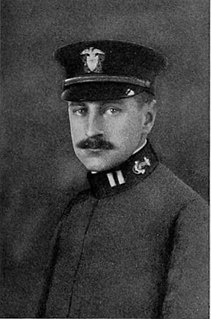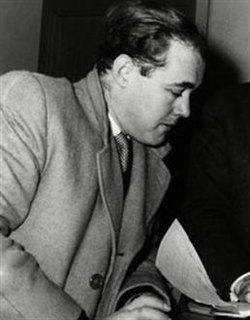A Quote by Winthrop W. Aldrich
If we can implant in our people the Christian virtues which we sum up in the word character, and, at the same time, give them a knowledge of the line which should be drawn between voluntary action and governmental compulsion in a democracy, and of what can be accomplished within the stern laws of economics, we will enable them to retain their freedom, and at the same time, make them worthy to be free.
Related Quotes
Yet the true friend of the people should see that they be not too poor, for extreme povery lowers the character of the democracy; measures therefore should be taken which will give them lasting prosperity; and as this is equally the interest of all classes, the proceeds of the public revenues should be accumulated and distributed among its poor, if possible, in such quantities as may enable them to purchase a little farm, or, at any rate, make a beginning in trade or husbandry.
Our virtues themselves are not free and floating qualities over which we retain a permanent control and power of disposal; they come to be so closely linked in our minds with the actions in conjunction with which we have made it our duty to exercise them that if we come to engage in an activity of a different kind, it catches us off guard and without the slightest awareness that it might involve the application of those same virtues.
As the astronomer rejoices in new knowledge which compels him to give up the dignity of our globe as the centre, the pride, and even the final cause of the universe, so do those who have escaped from the Christian mythology enjoy their release from the superstition which fails to make them happy, fails to make them good, fails to make them wise, and has become as great an obstacle in the way of progress as the prior mythologies which it took the place of two thousand years ago.
The time which passes over our heads so imperceptibly makes the same gradual change in habits, manners and character, as in personal appearance. At the revolution of every five years we find ourselves another and yet the same;--there is a change of views, and no less of the light in which we regard them; a change of motives as well as of action.
There's a great difference between knowing that a thing is so, and knowing how to use that knowledge for the good of mankind. Thetrouble with a scientist is we quickly tire of our discoveries. We hand them over to people who are not ready for them, while we go off again into the darkness of ignorance, searching for other discoveries, which will be mishandled in just the same way when the time comes.
More than by fear of going astray, my hope is that we will be moved by the fear of remaining shut up within structures which give us a false sense of security, within rules which make us harsh judges, within habits which make us feel safe, while at our door people are starving and Jesus does not tire of saying to us: 'Give them something to eat.'
The aim of education is to guide young persons in the process
through which they shape themselves as human persons-armed with knowledge, strength of judgment, and moral virtues-while at the same time conveying to them the spiritual heritage of the nation and the civilization in which they are involved.
Our ultimate weapon is not our guns but our beliefs ... Ours are not Western values. They are the universal values of the human spirit and anywhere, any time, ordinary people are given the chance to choose, the choice is the same. Freedom not tyranny. Democracy not dictatorship. The rule of law not the rule of the secret police. The spread of freedom is the best security for the free. It is our last line of defence and our first line of attack.
If the white man wants to live in peace with the Indian, he can live in peace. Treat all men alike. Give them all the same law. Give them all an even chance to live and grow. All men were made by the same Great Spirit Chief. They are all brothers. The Earth is the mother of all people, and all people should have equal rights upon it. Let me be a free man, free to travel, free to stop, free to work, free to trade where I choose, free to choose my own teachers, free to follow the religion of my fathers, free to think and talk and act for myself, and I will obey every law, or submit to the penalty.
The policy or advantage of [immigration] taking place in a body (I mean the settling of them in a body) may be much questioned; for, by so doing, they retain the language, habits, and principles (good or bad) which they bring with them. Whereas by an intermixture with our people, they, or their descendants, get assimilated to our customs, measures, and laws: in a word, soon become one people.





































